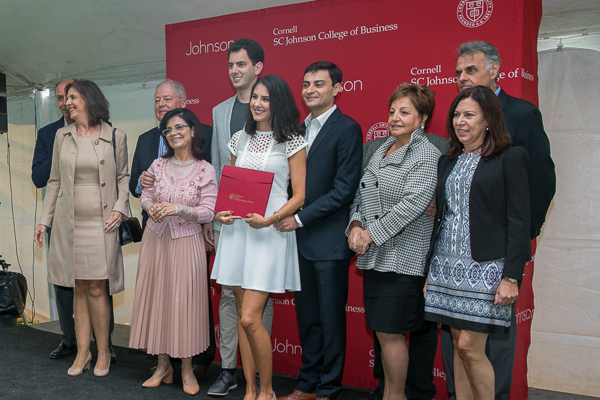
These credits must be appropriate to the subject of study and completed not more than five years before admission. (c) A maximum of 6 graduate-level credit hours earned outside the program, at Cornell University or elsewhere, may be counted toward these requirements at the discretion of the student's faculty advisor. (b) A maximum of 6 of the required 30 credit hours may be earned through the student's problem-solving project (see third bullet). (a) Twenty credit hours must be taken within the College of Agriculture and Life Sciences, and at least 30 credits must be in graduate-level courses (5000-level and higher).
#Cornell mps professional#
Satisfactory completion of a minimum of 30 credit hours related to the candidate's professional interest, as agreed upon with the faculty advisor.MPS students are part of a community of diverse students and faculty who share common goals, connecting research and practice to solve complex problems. To understand this difference in greater detail, please visit our FAQ page.

Instead of a thesis or research project, MPS students complete a capstone project during their final semester. In contrast, the MPS degree is a one-year, course-based program where students study the intricacies and in-depth questions of their field of study. is research-based, with students building a thesis over the course of two or three years. Though similar to a Master of Science (M.S.) degree in its academic rigor, the MPS degree differs from a traditional M.S. The mix of coursework and capstone project equips students with the skill set and knowledge necessary for careers in industry, government, or non-profit agencies.Ĭornell’s College of Agriculture and Life Sciences (CALS) Master of Professional Studies (MPS) program is an accredited, course-based, one-year Master’s degree program that emphasizes professional development and intellectual investigation in the areas of agriculture, life sciences and global development. Students also have the opportunity to create an interdisciplinary approach that combines distinct areas of study.Ī hallmark of the MPS program is the balanced portfolio of technical knowledge, analytical skills and professional development built into the curriculum. Areas of study cover a wide range of issues and advancements in plant and soil sciences, including: controlled environment agriculture, geospatial applications, soil health, c annabis science and industry, public garden leadership, and more.


Offered through the graduate field of Integrative Plant Science, the Master of Professional Studies in Agriculture and Life Sciences degree program is a specialized, one-year, course-based master's degree program. Master of Professional Studies (MPS) in Integrative Plant Science Learn about plant- and soil-based solutions for a changing world


 0 kommentar(er)
0 kommentar(er)
